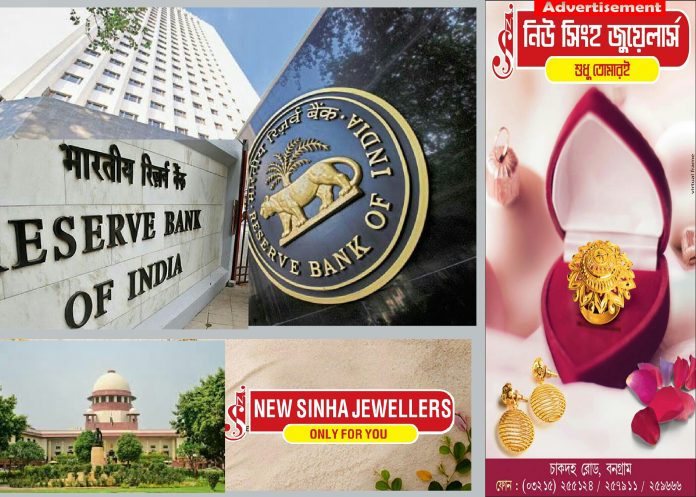By DESHER SAMAY
The unwillingness of Reserve Bank of India(RBI) to disclose the names of the big defaulters citing one reason or other clearly shows their earnest interest of the frauds to be back by institutional support.Supreme court on April 27 clearly pointed that unless RBI declares the names in RTI it will amount to contempt of court.
The Supreme Court on Friday told the Reserve Bank of India to withdraw its disclosure policy and make public the list of defaulters and its annual inspection reports, Bar and Bench reported.A bench of Justices L Nageswara Rao and MR Shah said it was giving the central bank one last opportunity to comply with its 2015 order on disclosures under the Right to Information Act. Any more violations will result in serious contempt of court proceedings, the judges added.
In the 2015 judgement, that court had held that the RBI was not in a fiduciary relation with individual banks as it does not hold such information in “trust” with such banks. Withholding such information would be detrimental to the nation’s economic interest of the nation, it had added.The court was hearing a contempt petition filed by RTI activist Subhash Chandra Agrawal in 2017 through advocates Prashant Bhushan and Pranav Sachdeva. The activist challenged the RBI’s directive to its public information officers to not disclose almost any information, even the kind that the Supreme Court asks to be released.
In a big boost to transparency Supreme Court of India has directed Reserve Bank to disclose willful defaulters list and annual inspection reports under RTI. The Bench comprising of Justice Nageswara Rao and Justice MR Shah was delivering the Judgment in a contempt petition filed by RTI activist Subhash Chandra Agrawal against Reserve Bank of India (RBI) alleging willful disobedience to the specific directions issued by the court in Reserve Bank of India Vs Jayantilal N Mistry and others.
The bench directed the RBI to withdraw the disclosure policy in so far as it contains exemptions which are contrary to the directions issued in Reserve Bank of India v. Jayantilal N. Mistry Judgment. In Jayantilal N Mistry case, the Supreme Court had held that the RBI is bound to disclose information under the RTI Act.
The bench observed that the new policy which replaces the disclosure policy dated 30.11.2016 directs various departments not to disclose information that was directed to be given by the judgment in Reserve Bank of India v. Jayantilal N. Mistry. Thus the RBI has committed contempt of Court by exempting disclosure of such materials, the bench said. However, the bench has given one last opportunity to RBI to comply with the Jayantilal N Mistry judgment and also warned RBI that any further violations of SC’s order will result in serious contempt of court proceedings.
The bench said “We could have taken a serious view of the Respondents continuing to violate the directions issued by this Court, we give them a last opportunity to withdraw the disclosure policy insofar as it contains exemptions which are contrary to the directions issued by this Court. The respondents are duty-bound to furnish all information relating to inspection reports and other material apart from the material that was exempted in para 77 of the judgment. Any further violation shall be viewed seriously by this Court.”
The petition moved through advocates Prashant Bhushan and Pranav Sachdeva said the RBI issued a ‘disclosure policy’ directing its Public Information Officers (PIOs) to not disclose virtually all information, even the kind of information directed to be disclosed by the Supreme Court. “The said policy states how RBI headquarter has decided not to disclose information with regards to applications received under the Right to Information Act 2005, in clear violation of the judgment of this Hon’ble Court,” the petition stated. The Supreme Court in Reserve Bank of India Vs Jayantilal N.Mistry and others had directed disclosure of information sought for under the RTI Act relating to individual banks regulated and supervised by the RBI. The central bank had earlier refused to disclose such information on the grounds of economic interest and holding such information in fiduciary relationship with these individual banks. The Supreme Court rejected the grounds for denial of information as baseless and directed the RBI to disclose information sought by the RTI applicant in that case.




